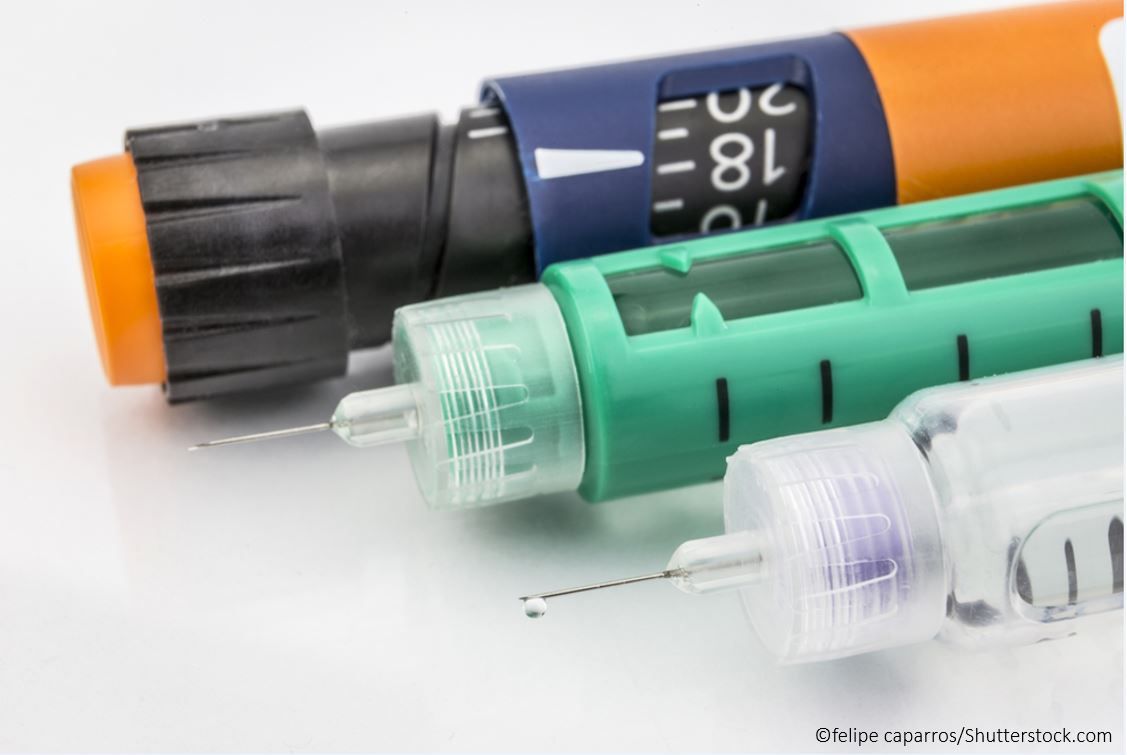Follow-on Biologics May Reduce Costs of Insulin Therapy
Follow-on biologics could reduce insulin therapy costs for diabetes patients, but how? This new study reveals.
©felipe caparros/Shutterstock.com

Follow-on biologics have the potential to significantly reduce costs for patients requiring insulin therapy, according to a new study.
Follow-on biologics are copies of originator innovator biologics. The term is applied to both biologics submitted under the Food, Drug, and Cosmetic Act (FD&C Act) as new drug applications and also to those biologics submitted under the Public Health Service Act as a biologic license application.
“For example, the glargine insulin, Basaglar, was approved via the FD&C Act regulatory pathway. Thus, it is a follow-on biologic, but it is not a biosimilar,” stated authors led by Richard Dolinar, MD, of the Arizona Endocrinology Center in Phoenix. The number of follow-on biologics and biosimilars available in the US is likely to increase markedly in the coming years, including for many of the insulins used to treat diabetes, they noted.
The authors published their review in the February 2018 issue of Endocrine Practice.
Drugs are described as “follow-on biologics” or “biosimilars” depending on the way they are approved by the FDA-but not “bioidentical” or “generic”-because although they are similar, they are not identical to the reference product, which is the original biologic drug. Follow-on biologics and biosimilar drugs can be assumed to be similar enough to the reference biologic product to allow them to be used interchangeably.
No criteria are available for establishing the therapeutic equivalence of follow-on biologics that have used the new drug approval regulatory pathway under the FD&C Act. “Thus, a follow-on biologic, such as Basaglar, which has used this pathway, has not been rated in regard to therapeutic equivalency. Thus, it should not be substituted by the pharmacist without the expressed permission of the prescriber,” they stated.
Insurance companies will likely end up dictating which products patients receive. In 2017, many insurance plans dropped reference Lantus from their formularies in favor of the follow-on Basaglar. Pharmacies will also play a role. One large pharmacy benefit manager recently chose follow-on Basaglar above other currently used reference insulin glargine products for its formulary, the authors noted.
Although Basaglar is a glargine insulin with the identical amino acid sequence as Lantus, it is not considered to be identical because it uses a different manufacturing process and excipients, and therefore is not substitutable for Lantus.
“Instead, it is best viewed as another different brand name glargine insulin,” they stated. “Because of this, if glargine insulin is ordered, then the pharmacist should contact the prescriber to verify which brand of glargine to give to the patient. It is the prescriber who decides and not the pharmacist.”
For some biologics for insulin, the product is closely linked to the delivery device. Regular use of these devices means they become part of a patient's routine. “Familiarity and comfort with a device may encourage patients to prefer a specific branded insulin, even if ‘cheaper’ copies are available,” they stated. “Importantly, the relatively small price differentials between biosimilars and the reference drug will likely result in direct competition between the two drugs. This may therefore drive down the cost of the reference drug.”
References:
Dolinar R, Lavernia F, Edelman S. A guide to follow-on biologics and biosimilars with a focus on insulin. Endocr Pract. 2018;24:195-204.